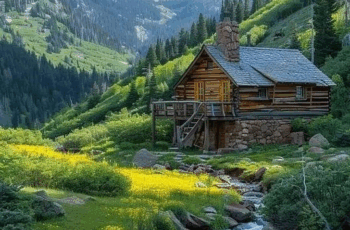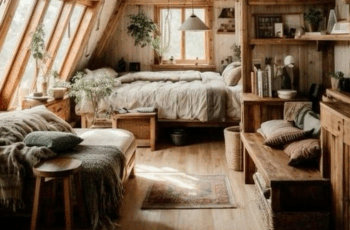
Owning a cabin is like having a little slice of paradise—away from the noise and chaos of everyday life. But along with the peace comes some responsibility, especially when it comes to safety. Cabins have their own quirks and risks that you won’t always find in regular homes. So, taking a few smart precautions can save you a lot of headaches later, and more importantly, keep everyone safe. Here’s what you need to know to protect your cabin and those who visit.
First off, fire safety is a big deal. Wooden cabins can go up in flames fast if you’re not careful. That means smoke detectors aren’t just a nice-to-have—they’re a must. Put them in spots like the kitchen, bedrooms, and living areas, and check the batteries often. A fire extinguisher is your best friend too—keep it close by, especially in the kitchen, and make sure everyone knows where it is and how to use it. And don’t just hope for the best—have a fire escape plan with clear exits and a meeting spot outside. Practice it sometimes, so no one’s caught off guard.
Next, think about security. Cabins can be lonely places, which unfortunately makes them targets for break-ins. Make sure all doors and windows have strong locks—deadbolts are worth the investment. Outdoor motion lights can scare off unwanted visitors at night. If you can, set up a security camera system. And don’t forget the power of friendly neighbors—they can be your eyes and ears when you’re not around.
Heating your cabin safely is another key point. Wood stoves and fireplaces are charming but need respect. Always follow instructions on your heating gear, and get chimneys cleaned yearly to avoid dangerous buildup. Keep anything flammable well away—blankets, firewood, paper—and use fire screens to stop sparks from flying.
Outdoor safety often gets overlooked, but it’s just as important. If you’re hiking or fishing nearby, tell someone where you’re going and when you’ll be back. Always have a first-aid kit handy and know some basic emergency care. If cell signal is spotty, having a walkie-talkie or another way to call for help can be a lifesaver.
Depending on where your cabin is, wildlife might drop by uninvited. Bears, raccoons, snakes—they’re curious creatures and often attracted by food smells. Store your food and trash in secure containers, and keep windows and doors closed or screened to keep critters out. It’s smart to learn what animals you might encounter and how to deal with them safely.
If kids or pets come along, extra care is needed. Anchor heavy furniture so it won’t tip over, cover electrical outlets, and stash away anything toxic. Gates on stairs can keep little ones from tumbling down. Make sure pets have a safe space where they can’t wander off or get hurt.
Don’t forget about walkways—inside and out. Messy paths with clutter, wet leaves, or ice can cause nasty falls. Keep paths clean and consider putting down non-slip mats or coatings, especially on decks and stairs.
No one wants to think about emergencies, but being prepared can make all the difference. Stock up on essentials like water, non-perishable food, flashlights, batteries, and first-aid supplies. Have a clear evacuation plan and go over it with your family or guests so everyone knows what to do if something goes wrong.

Of course, regular checkups on your cabin keep small issues from turning into disasters. Look out for leaks, wood rot, or signs of pests. Test your smoke and carbon monoxide detectors regularly and fix anything that’s off right away.
Finally, trust your gut. If something feels wrong or unsafe, don’t ignore it. Speak up, take action, and make sure everyone around you does the same. Creating a culture of safety means everyone stays alert and protected.
Living in a cabin is amazing, but safety is part of the package. Take these tips seriously, and you’ll enjoy your getaway with peace of mind, knowing you’ve done all you can to stay safe.


